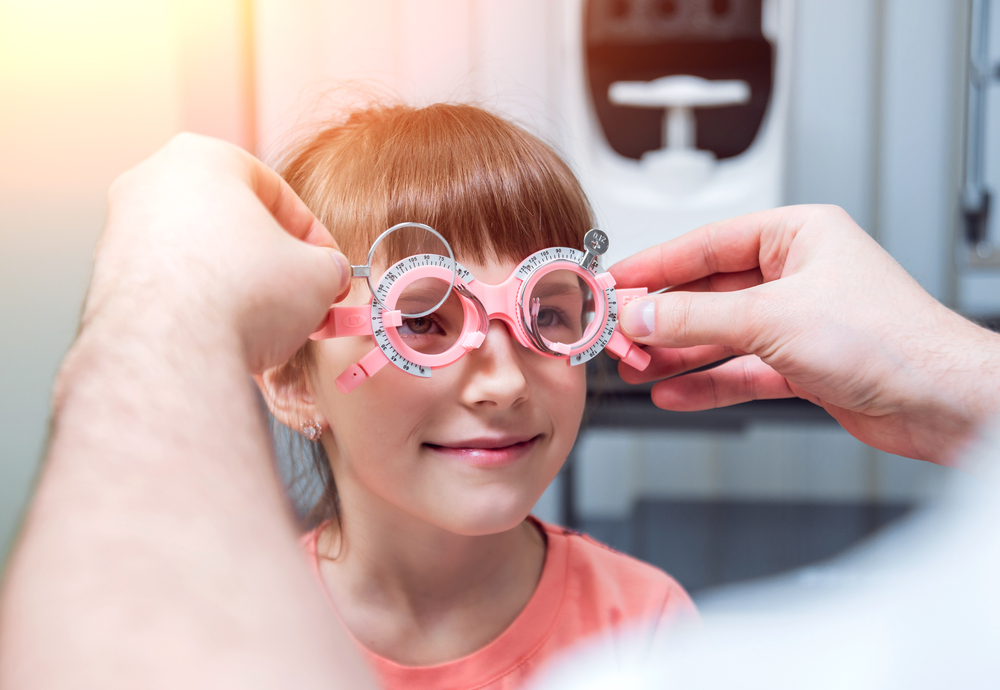
Vision development in children is an integral part of their overall growth and development. When we think about children growing, we generally think about their physical and mental development. Yet, vision development, a critical aspect of a child's growth, is often overlooked. It is a complex process that begins at birth and continues throughout childhood. It involves the maturation of the visual structures within the brain as well as the eyes themselves. As a parent or caregiver, it is essential to understand the basics of vision development and the role it plays in a child's overall development.
The Importance of Vision Development
Vision is a primary sensory source for children, and it plays a crucial role in their cognitive, social, and physical development. It is through vision that children learn to recognize faces, explore their environment, and begin to make sense of the world around them.
Vision also plays a significant role in children's academic success. Most of the learning in school is visual, from reading and writing to understanding diagrams and graphs. If a child has an undetected vision problem, it can affect their ability to learn and keep up with their peers.
Additionally, vision development is closely tied to motor development. Children use their vision to guide their movements, whether it's reaching for a toy as a baby or playing sports as they get older. Any issues with vision can lead to delays in these areas.
Common Eye Conditions in Children
There are several common eye conditions in children that can affect their vision development. These include refractive errors, strabismus, amblyopia, and congenital eye disorders.
Refractive errors are the most common and can usually be corrected with glasses or contact lenses. Strabismus and amblyopia, however, can lead to more serious vision problems if not treated early. In both cases, the brain may start to ignore the signals from one eye, leading to poor vision development in that eye.
Congenital eye disorders can also affect vision development. These conditions can range from minor issues that don't significantly impact vision to serious conditions that can lead to vision loss.
The Role of Regular Eye Exams in Children's Vision Development
Regular eye exams play a crucial role in children's vision development. They allow for early detection and treatment of vision problems, ensuring that children have the visual skills they need for successful development and learning.
Vision screenings, often performed at school or by a pediatrician, are a good starting point. However, they are not a substitute for a comprehensive eye exam by an eye care professional. These exams can detect more subtle vision problems and eye health issues that a screening might miss.
Ideally, children should have their first eye exam at six months of age, then at age three, and again before starting school. After that, regular eye exams should be part of their routine health care.
How to Support Children's Vision Development at Home
There are several ways you can support your child's vision development at home. First, ensure they have plenty of opportunities for visual stimulation. This can be through play, reading, arts and crafts, and other activities that encourage visual exploration.
Second, monitor your child's screen time. Excessive screen use can lead to eye strain and other vision problems. Make sure they take regular breaks and maintain a healthy distance from the screen.
Lastly, provide a healthy diet rich in fruits, vegetables, and omega-3 fatty acids, which are essential for eye health. Also, ensure your child wears protective eyewear during sports and other high-risk activities to prevent eye injuries.
Ensuring Optimal Vision Development in Children
Vision development is a critical aspect of a child's overall growth and development. As parents and caregivers, we have a responsibility to ensure our children's eyes are healthy and their vision is developing as it should. This includes understanding the importance of vision development, recognizing common eye conditions, ensuring regular eye exams, and supporting vision development at home.
To learn more about the importance of vision development for children, visit GrandView Eyecare at our office in Fairbury or Hebron, Nebraska. Please call (402) 729-6162 or (402) 768-6651 to schedule an appointment today.







